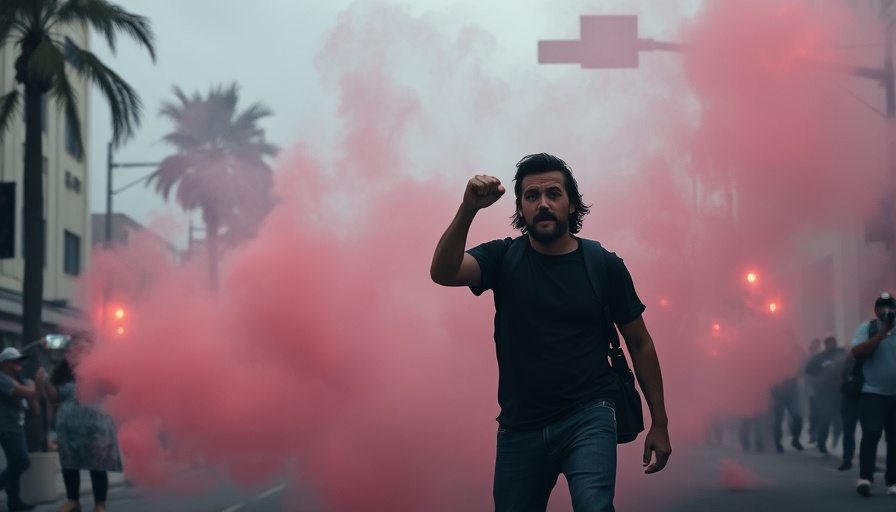
Understanding the Deployment of National Guard Troops
In a significant move, President Donald Trump announced the deployment of 2,000 California National Guard troops to Los Angeles following protests against ICE immigration raids. This decision has sparked controversy and opposition from California Governor Gavin Newsom, who argues that the presence of federal troops is likely to escalate tensions rather than quell them. Historically, the National Guard has been used in similar situations, raising questions about the role of federal forces in state matters.
Historical Context of Military Deployment
This is not the first instance where military forces were called upon to handle civil unrest. In 2020, during the protests stemming from the murder of George Floyd, Trump urged governors to send National Guard troops to Washington, D.C. Many complied, viewing it as a necessary measure to maintain order. However, when states opted out, they retained their jurisdiction over their National Guard units. By federalizing troops, Trump is stepping into a role traditionally reserved for state leadership.
Legal Complications Surrounding Federal Troop Activation
The deployment of National Guard units for civil disturbances raises legal concerns. Federal law typically restricts military engagement in civilian law enforcement unless there is an emergency. Critics argue that the vague legal frameworks governing such deployments could lead to constitutional challenges. The key question remains: at what point does intervention by federal troops override state rights and local governance?
The Impact on Community Relations
The anxiety surrounding the National Guard's deployment reflects deeper issues in community-police relations, particularly in immigrant communities. Events like the ICE raids amplify fears, and the presence of armed troops can evoke apprehension rather than security. Understanding the emotional and social dynamics that drive these protests is crucial—they are rooted in a community's desire for protection from perceived governmental overreach.
What This Means for California’s Political Climate
California’s stance against the federal government's actions under Trump's administration creates a political battleground. Newsom’s vocal opposition underscores the recurring themes of states’ rights vs. federal authority. It raises the prospect of potential legal clashes and political fallout, testing the boundaries of state sovereignty against federal mandates.
Looking to the Future: Predictions and Potential Outcomes
As events in Los Angeles unfold, various scenarios could play out. Fueled by heightened tensions, further protests might arise, catalyzed by the visible presence of military forces. Alternatively, if the introduction of National Guard troops brings a semblance of order, it may embolden federal authorities to apply similar measures in other turbulent regions. The ramifications will likely ripple beyond California, shaping national conversations about immigration and law enforcement.
The Voice of the American People
Protests across the nation reflect a diverse chorus of opinions on immigration policy and law enforcement practices. Engaging with different community perspectives about these topics allows for a deeper understanding of the societal fabric that binds the U.S. together. It is essential for leaders on all sides to consider the voices of those directly impacted by policy changes.
The deployment of National Guard troops is more than a political maneuver; it’s a reflection of the current state of civil discourse in America. As we push through these challenging times, it becomes crucial to seek dialogue and understanding across differing viewpoints.
 Add Row
Add Row  Add
Add 




 Add Row
Add Row  Add
Add 

Write A Comment